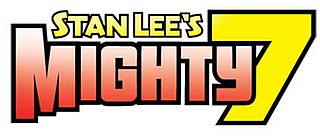Related Research Articles

Celebrity is a condition of fame and broad public recognition of a person or group as a result of the attention given to them by mass media. An individual may attain a celebrity status from having great wealth, their participation in sports or the entertainment industry, their position as a political figure, or even from their connection to another celebrity. 'Celebrity' usually implies a favorable public image, as opposed to the neutrals 'famous' or 'notable', or the negatives 'infamous' and 'notorious'.

In economics, a network effect is the phenomenon by which the value or utility a user derives from a good or service depends on the number of users of compatible products. Network effects are typically positive, resulting in a given user deriving more value from a product as more users join the same network. The adoption of a product by an additional user can be broken into two effects: an increase in the value to all other users and also the enhancement of other non-users' motivation for using the product.

Sony Group Corporation, commonly stylized as SONY, is a Japanese multinational conglomerate corporation headquartered in Minato, Tokyo, Japan. As a major technology company, it operates as one of the world's largest manufacturers of consumer and professional electronic products, the largest video game console company and the largest video game publisher. Through Sony Entertainment Inc, it is one of the largest music companies and the third largest film studio, making it one of the most comprehensive media companies. It is the largest technology and media conglomerate in Japan. It is also recognized as the most cash-rich Japanese company, with net cash reserves of ¥2 trillion.

Product placement, also known as embedded marketing, is a marketing technique where references to specific brands or products are incorporated into another work, such as a film or television program, with specific promotional intent. Much of this is done by loaning products, especially when expensive items, such as vehicles, are involved. In 2021, the agreements between brand owners and films and television programs were worth more than US$20 billion.
Viral marketing is a business strategy that uses existing social networks to promote a product mainly on various social media platforms. Its name refers to how consumers spread information about a product with other people, much in the same way that a virus spreads from one person to another. It can be delivered by word of mouth, or enhanced by the network effects of the Internet and mobile networks.

4Kids Entertainment, Inc. was an American licensing company. The company was previously also a film and television production company that produced English-dubbed Japanese anime through its subsidiary 4Kids Productions between 1992 and 2012; it specialized in the acquisition, production and licensing of children's entertainment around the United States. The first anime that 4Kids Productions dubbed was the first eight seasons of Pokémon that originally began airing on first run syndication and then it later moved to exclusively air on Kids' WB! in the United States. The company is most well known for its range of television licenses, which has included the multibillion-dollar Pokémon and Yu-Gi-Oh! Japanese anime franchises. They also ran two program blocks: Toonzai on The CW, and 4Kids TV on Fox, both aimed at children. The 4KidsTV block ended on December 27, 2008; Toonzai block ended on August 18, 2012, which was replaced by Saban's Vortexx, which in itself was succeeded by Litton's One Magnificent Morning in 2014.

Transformers is a 2007 American science fiction action film based on Hasbro's toy line of the same name. The film is the first installment in the Transformers film series. The film is directed by Michael Bay from a screenplay by Roberto Orci and Alex Kurtzman. It stars Shia LaBeouf as Sam Witwicky, a teenager who gets caught up in a war between the heroic Autobots and the villainous Decepticons, two factions of alien robots who can disguise themselves by transforming into everyday machinery, primarily vehicles. The Autobots intend to retrieve and use the AllSpark, the powerful artifact that created their robotic race that is on Earth, to rebuild their home planet Cybertron and end the war, while the Decepticons have the intention of using it to build an army by giving life to the machines of Earth. Tyrese Gibson, Josh Duhamel, Anthony Anderson, Megan Fox, Rachael Taylor, John Turturro and Jon Voight also star, while voice actors Peter Cullen and Hugo Weaving voice Optimus Prime and Megatron respectively.

User-generated content (UGC), alternatively known as user-created content (UCC), is any form of content, such as images, videos, text, testimonials, and audio, that has been posted by users on online platforms such as social media, discussion forums and wikis. It is a product consumers create to disseminate information about online products or the firms that market them.
Licensing means renting or leasing of an intangible asset. It is a process of creating and managing contracts between the owner of a brand and a company or individual who wants to use the brand in association with a product, for an agreed period of time, within an agreed territory. Licensing is used by brand owners to extend a trademark or character onto products of a completely different nature.
"Branch Closing" is the seventh episode of the third season of the American comedy television series The Office and the show's 35th overall. It was written by co-executive producer Michael Schur and directed by Tucker Gates. An edited version of the episode first aired on November 9, 2006, on NBC; later that night, a longer "producer's cut" edition was released, with deleted scenes edited into the full episode and broadcast on the website NBC.com. This uncut episode is the version included on the Season 3 DVD set.
A knowledge market is a mechanism for distributing knowledge resources. There are two views on knowledge and how knowledge markets can function. One view uses a legal construct of intellectual property to make knowledge a typical scarce resource, so the traditional commodity market mechanism can be applied directly to distribute it. An alternative model is based on treating knowledge as a public good and hence encouraging free sharing of knowledge. This is often referred to as attention economy. Currently there is no consensus among researchers on relative merits of these two approaches.
Transmedia storytelling is the technique of telling a single story or story experience across multiple platforms and formats using current digital technologies.
Fan labor, also called fan works, are the creative activities engaged in by fans, primarily those of various media properties or musical groups. These activities can include creation of written works, visual or computer-assisted art, films and videos, animations, games, music, or applied arts and costuming.

Customer experience (CX) is a totality of cognitive, affective, sensory, and behavioral consumer responses during all stages of the consumption process including pre-purchase, consumption, and post-purchase stages. Pine and Gilmore described the experience economy as the next level after commodities, goods, and services with memorable events as the final business product. Four realms of experience include esthetic, escapist, entertainment, and educational components.
An Internet celebrity is a celebrity who has acquired or developed their fame and notability through the Internet. The rise of social media has helped people increase their outreach to a global audience. Today, popular influencers are found on popular online platforms such as Facebook, YouTube, Instagram, WeChat, TikTok, QQ, Snapchat, Telegram, Twitter, and Reddit.

Walter is a Muppet character that first appeared in the 2011 film The Muppets. Performed by Peter Linz, he is one of the film's main characters, along with Kermit the Frog and the rest of the Muppets. Walter also appears in the 2014 sequel film, Muppets Most Wanted; though still a major character, he plays a smaller role than he does in the previous film.

The Japanese technology company, Sony, engaged in a variety of different marketing efforts, as one of the world's largest and most pervasive corporations.

Stan Lee's Mighty 7 is a media franchise of a fictional superhero team originally published as a Stan Lee Comics line comic book title.
Pretail is a sub-category of e-commerce and online retail for introducing new products, services, and brands to market by pre-launching online, from creating an interest waitlist of signups before launch to collecting reservations or pre-orders in limited quantity before release, realization, or commercial availability. Pretail allows new product ideas/prototypes to be mass produced only when they have reached an initial threshold of buy-in from investors/consumers. Pretail includes pre-sale commerce, pre-order retailers, pre-launch marketing services, incubation marketplaces, crowdfunding communities, and demand chain management systems.

The term hype culture refers to a cultural trend within contemporary consumer culture, that corresponds to the constant search of the last "big thing". This phenomenon circulates around the concept of expectation, more precisely it is characterized by an attitude of excessive and positive expectations that consumers attach to products, services or technological advancements which have yet to be released.
References
- Wolf, Michael (1999). The Entertainment Economy. New York: Random House. ISBN 0-9674506-5-9.
- "Alpha consumer". The Rice University Neologisms Database. Rice University. June 10, 2008. Retrieved 2012-11-16.
- Lowry, Tom (February 19, 2006). "Can MTV Stay Cool?". Business Week. Retrieved 2012-11-16.
- Grossman, Lev (August 31, 2003). "What's Next?: The Quest For Cool". Time . Archived from the original on 2010-06-17. Retrieved 2012-11-16.
- "Early-Adopter Fans Kill 'Studio 60'! (Maybe.)". Daily Intel (blog). New York. October 10, 2006. Retrieved 2012-11-16.
- "Studio 60 Takes a Crack at Alpha Consumers". October 10, 2006. Archived from the original on March 14, 2012. Retrieved November 16, 2012.